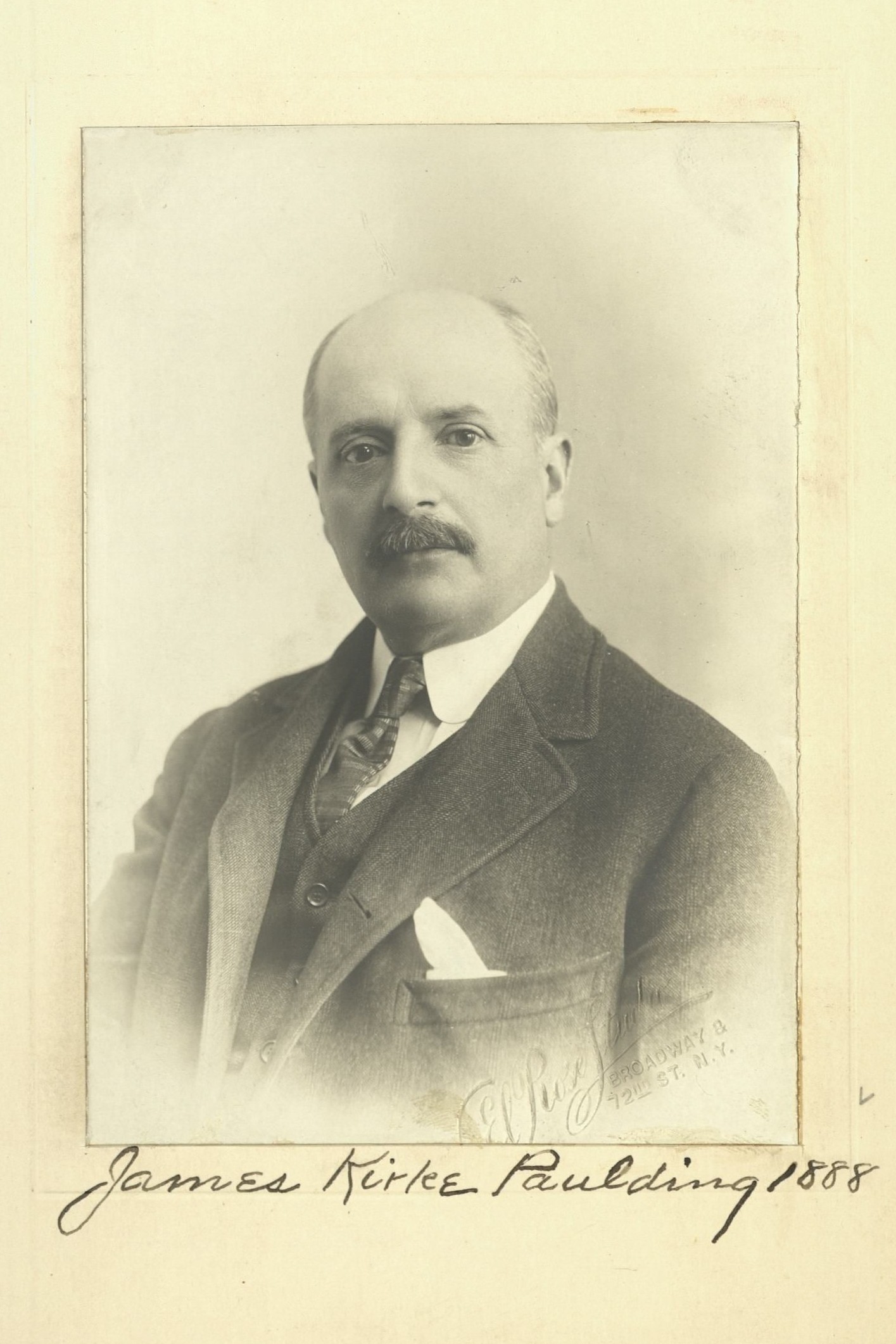Gentleman/Philanthropist
Centurion, 1888–1943
Born 1 August 1863 in Cold Spring, New York
Died 12 December 1943 in New York (Manhattan), New York
Buried Cold Spring Cemetery , Cold Spring, New York
, Cold Spring, New York
Proposed by James N. Paulding and Henry A. Oakley
Elected 4 February 1888 at age twenty-four
Archivist’s Note: Son of James N. Paulding (his proposer); nephew of William I. Paulding; grandson of Isaac G. Pearson; great-nephew of Gouverneur Kemble and William Kemble; uncle of Charles G. Paulding
Century Memorial
In more ways than one James Kirke Paulding was a link between the Century of the present and of the past. He lived to be an octogenarian; but that is no great age for the sturdy breed of Centurions; ten men on this roll lived longer. The point was that, elected a member while a young man, he achieved a span of membership, fifty-five years, that was extraordinary. He was, moreover, throughout his years of membership, a devoted and constant Centurion, with friends in generations that looked both backward and forward. His great-uncle, for one association with the past, was Gouverneur Kemble, a founder of the Club.
There was the additional fact that Paulding, in character as in his way of living, seemed to belong to an older, a more spacious, a more leisurely age. Possessed of a sufficient income, he early decided against any money-making career. As a bachelor and a highly cultivated man, he dined out often and was a much appreciated guest. He might have relaxed into a life of aristocratic ease. Instead he devoted a large part of his many years to good deeds, some of them in the service without pay of public institutions, more in befriending people in need. He was one of the early volunteers in the formative years of the University Settlement, teaching English to newly arrived immigrants; he organized a series of people’s singing classes under the direction of Frank Damrosch; for years he served as secretary of the Board of Bellevue Hospital; in the World War he served in France as captain in the American Red Cross; and he was a member of the Board of Education of this city.
But he was even more concerned with individuals who were in trouble, giving endlessly to their aid of his time, patience and substance. A fellow Centurion writes thus of these activities, his real career:
“Paulding sometimes doubted whether the kind of life he led, without any regular profession, was justified when he saw the people around him rushing to their offices to be there at a regular hour and leaving at a regular time at the end of the day. He told me the barber he went to called him Doctor, because as Paulding would turn up at, say, eleven o’clock in the morning, the barber had decided he was a doctor, and Paulding said, ‘I haven’t the moral courage to tell him I am not.’ But I think Paulding’s life was more than justified in every way. I think it is a pity that there are not more men who are able and willing to spend such lives. Most of us are so wrapped up in our affairs that we spend too little time in helping others. I can think of numbers of cases of young fellows that he pulled out of difficulties. Sometimes it was drink, sometimes it was a difficulty with women, sometimes it was a married couple that were having trouble; of course, he couldn’t always straighten them out nor would they always stay straightened, but I don’t think he ever refused to try.”
Philanthropy became an affair of magnificent gifts in wealthier and more crowded days. But there is surely something appealing about the older and not less precious fashion in which Paulding lent a hand. A happy life and a full one was his, rich in friendships, many of them cherished memories of the Century.
Geoffrey Parsons
1943 Century Memorials

